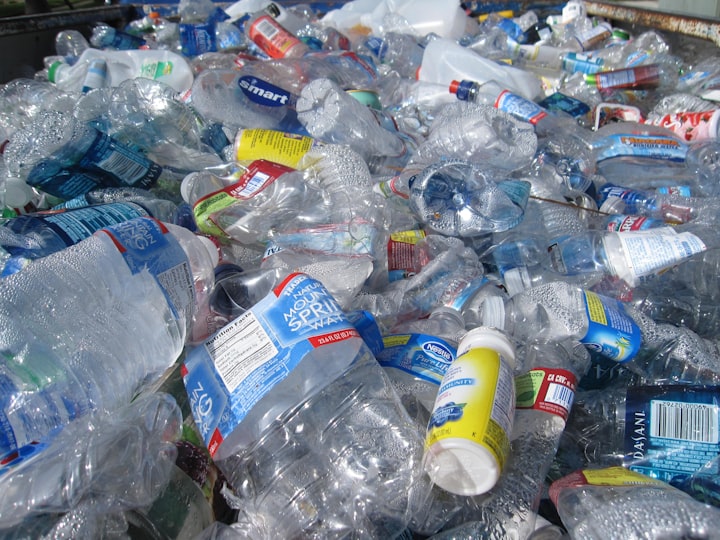Plastic Waste Crisis
Challenges and Potential Strategies

Plastic pollution is a result of excessive plastic production, inadequate waste management, and widespread consumption of single-use plastics. The challenges of plastic waste management are a critical environmental issue that has far-reaching implications. It has an environmental impact of plastic, and the plastic pollution poses a significant threat to ecosystems, wildlife, and human health. The presence of plastic pollution has a far reaching effect on ecological threats to aquatic life, water quality, and the overall health of the surrounding environment.
The plastic waste problem is a complex global issue that requires comprehensive and coordinated efforts to address. It will require the combined efforts of governments, industries, communities, and individuals to effectively combat this challenge
The issue of plastic pollution is heavily affected by plastic debris, originating from various sources such as urban litter, inadequate waste management, and industrial activities along the riverbanks.
Understanding the sources of plastic pollution is crucial for implementing effective strategies to mitigate its impact on marine ecosystems.
The pollution of the ocean with plastic is a result of various sources, including:
Mismanaged Waste: Inadequate waste management infrastructure in many regions leads to litter and improperly disposed plastic waste making its way into waterways and eventually the ocean.
Land-based Sources: Urban runoff, industrial activities, and illegal dumping contribute to plastic pollution in rivers and coastal areas, which ultimately flow into the ocean.
Inadequate Recycling and Disposal: Improperly discarded plastics, including single-use items, can be carried by wind or water currents into the ocean.
Fishing and Maritime Activities: The fishing industry, shipping, and maritime operations, along with discarded fishing gear, can introduce plastic waste into the ocean.
Addressing the complex challenges of the plastic crisis is essential for facilitating positive change. There are innovative solutions and global efforts to address the plastic problem, including recycling initiatives, sustainable packaging alternatives, and advocacy for policy changes.
The plastic crisis, encompassing issues of pollution, waste management, and environmental impact, has garnered global attention. Some potential solutions to address this crisis include. These measures, when widely implemented and supported, have the potential to significantly reduce the impact of plastic waste.:
Raising Awareness: Educating and increasing public awareness about the hazardous effects of plastic pollution and educating communities on sustainable waste management practices can lead to more mindful consumption and disposal of plastics.
Research and Innovation: Investing in research and development to create and encourage sustainable alternatives to the reduction of single-use plastics and improve recycling processes.
Reduce and Redesign: Encourage the redesign of products and packaging to be more sustainable and easily recyclable.
Improve Recycling Infrastructure: Invest in and improve recycling infrastructure, including collection systems, processing facilities, and market demand for recycled materials.
Policy and Regulation: Enacting, Implementing and strengthening strict regulations on plastic production, usage, and waste management to promote responsible consumption and reduce environmental impact.
Implement Extended Producer Responsibility (EPR): Hold producers accountable for the entire lifecycle of their products, including collection, recycling, and disposal, incentivizing eco-friendly designs and waste reduction.
Innovation and Research: Invest in innovative technologies and research to develop biodegradable materials, alternative packaging solutions, and improved recycling processes.
Global Collaboration: Foster international cooperation and partnerships to address the transboundary nature of plastic pollution and implement effective solutions on a global scale.
Corporate Responsibility: Encouraging companies to adopt sustainable practices, reduce plastic packaging, and invest in eco-friendly alternatives.
Waste Management Infrastructure: Developing efficient waste management systems, including recycling facilities and waste-to-energy technologies.
Public Participation: Engaging communities in clean-up initiatives, recycling programs, and local conservation efforts to reduce plastic pollution.
By employing a combination of strategies and amplifying global efforts, it's possible to mitigate the environmental impact of plastic pollution.
About the Creator
Reader insights
Outstanding
Excellent work. Looking forward to reading more!
Top insights
Heartfelt and relatable
The story invoked strong personal emotions
Easy to read and follow
Well-structured & engaging content
Excellent storytelling
Original narrative & well developed characters
Expert insights and opinions
Arguments were carefully researched and presented
Eye opening
Niche topic & fresh perspectives
Masterful proofreading
Zero grammar & spelling mistakes
Compelling and original writing
Creative use of language & vocab
On-point and relevant
Writing reflected the title & theme





Comments
There are no comments for this story
Be the first to respond and start the conversation.